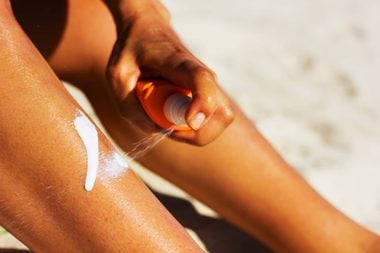
Do: Check the ingredients
The Environmental Working Group, a long-standing non-profit consumer information organization, has recently put out its updated Sunscreen Guide. It’s a comprehensive piece of work, featuring effectiveness ratings of 1700 sunscreens, information about sun exposure and skin cancer and a detailed breakdown of what we should and shouldn’t be looking for in a sunscreen. No time to read it before hitting the beach? Bookmark these key points instead:
Make sure you always read the ingredients list before buying a new sunscreen. Do look for the ingredients zinc, titanium dioxide, avenobenzone and Mexoryl SX, all of which are powerful UVA blockers that remain on the surface of the skin instead of absorbing into the body. Don’t choose a product that includes ingredients that may affect hormones and/or are potentially carcinogenic, such as insect repellent, oxybenzone and vitamin A (retinyl palmitate). Make sure to try these specific sunscreens that dermatologists use on themselves.

Don’t: Be fooled by high SPF sunscreens
Don’t waste your money on sunscreens claiming an SPF higher than 50. According to the FDA, there’s no evidence such products provide better protection against harmful rays—and they may actually make us feel overconfident and less likely to reapply. Make sure you do opt for SPF 15-30+ daily. If you plan to be outdoors for an extended period of time, slather on the 30+. Avoid these common sunscreen mistakes that most people make.

Do: Use broad-spectrum protection
Always choose a long-lasting sunscreen that offers broad-spectrum protection from both UVA and UVB rays. But don’t think that this means you don’t have to reapply often. Even waterproof sunscreens eventually wash off, and all sunscreens can be easily rubbed off by towels, sand, and clothes. These sunscreen myths make dermatologists cringe.

Do: Remind men to wear sunscreen
Always remind your husbands, sons, boyfriends, brothers, and dads to wear sunscreen. According to research done by the Environmental Working Group, 78 percent of women wear sunscreen while only 34 percent of men do. This is what the labels on your sunscreen really mean.

Don’t: Skip talking to your pediatrician
Never put sunscreen on an infant without consulting with your pediatrician. Make sure to talk with a doctor first about specific types of sunscreen. Then, when you do apply a new brand of sunscreen for the first time test a small amount of sunscreen on your child’s wrist before slathering it on, to test for an allergic reaction to the ingredients.

Don’t: Only stick to the sprays
Many consumers love using spray-on sunscreens because they are quick and easy. However, the Environmental Working Group says that they don’t provide an even and thick enough layer of sunscreen on the skin to properly protect it. They suggest only using lotion sunscreens, especially on your face.

Do: Use other forms of protection besides sunscreen
It hasn’t been proven that sunscreen protects against most types of skin cancer. Make sure when you are out in the sun that you guard your skin in other ways besides just lotion. Wear shirts, hats, pants, and shorts whenever possible. If you’re at the beach, try to stay under the shade of an umbrella when you’re not playing in the water.
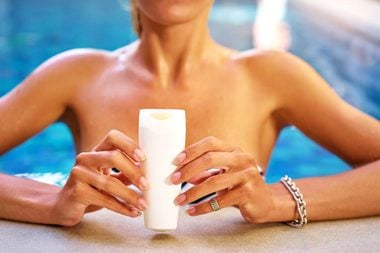
Do: Avoid sunscreen with a vitamin A additive
Many companies add a form of Vitamin A to their sunscreens called retinyl palmitate. It’s supposed to combat skin aging but studies have found that it can also trigger the growth of tumors and lesions on the skin when used in sunlight. It’s advised that you not only avoid sunscreens with this additive, but also body lotions and makeup, especially lipstick.
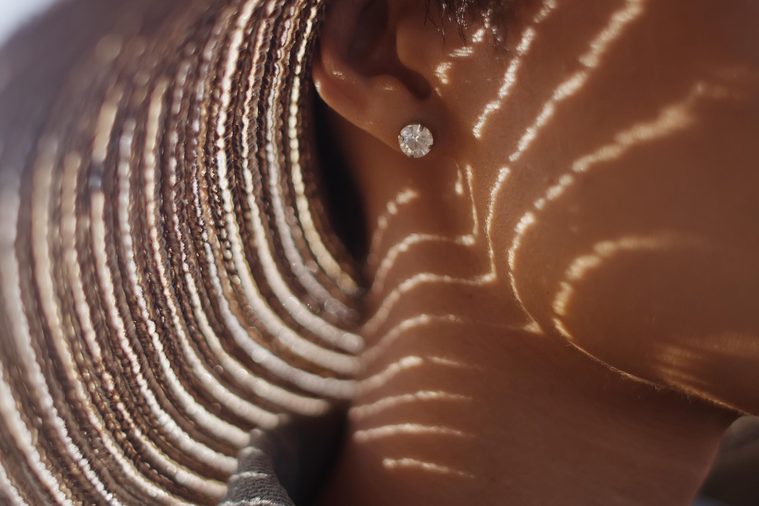
Do: Apply sunscreen to your ears
It’s easy to forget to apply sunscreen to certain parts of your body when you’re just ready to jump in the pool. But MD and director of cosmetic dermatology Joyce Imahiyerobo-Ip said that she would tell her patients that’s the number one place they remember because its a high-risk area for skin cancer. Find out more critical spots dermatologists wish you’d remember to apply to screen.

Don’t: Replace sunscreen with a hat
Hats provide only a small amount of protection for your face. Baseball hats in particular aren’t even the best because they leave your ears exposed even more to UV rays. On top of wearing a wide-brimmed hat, so your ears can be covered, apply sunscreen to your face. While you’re shopping for the perfect poolside or beach day hat, make sure you know what to look for in the sunscreen you’re buying too.
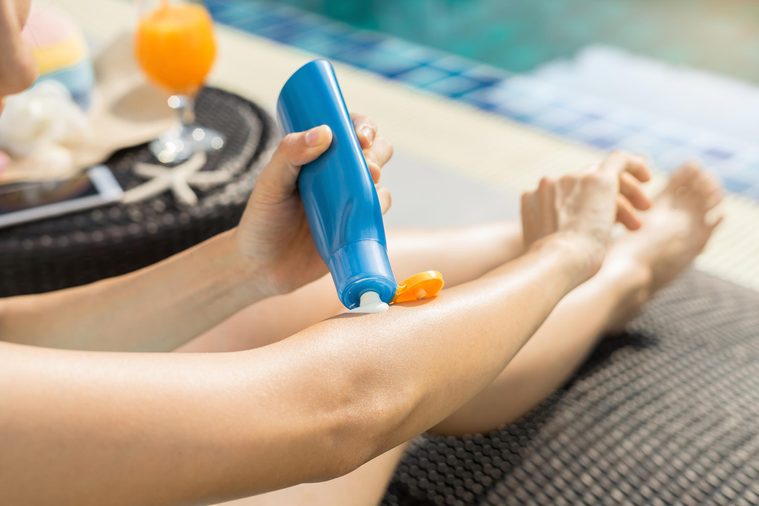
Do: Buy special sunscreen for sensitive skin
Babies and small children aren’t the only ones with sensitive skin. Pregnant or breastfeeding women should also be careful with the type of formulas in their sunscreen. Exposure to the chemical oxybenzone can sometimes affect the birth weight of both female and male babies. This is a list of the 12 safest sunscreens for everyone in the family.
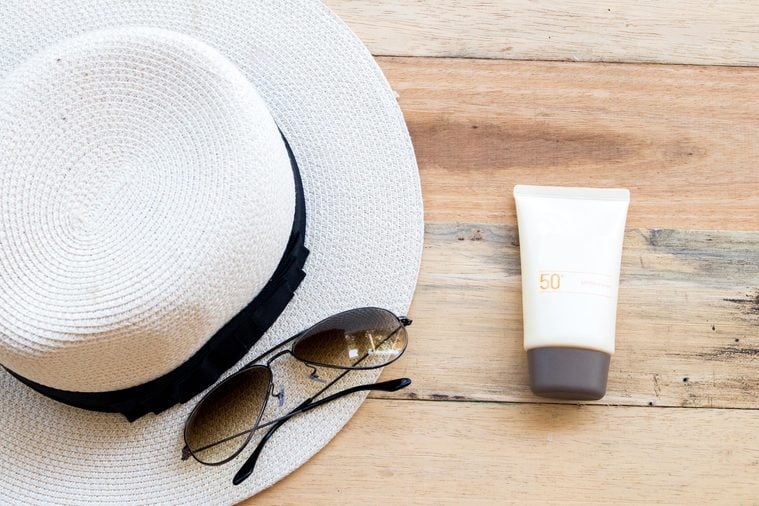
Don’t: Store sunscreen in warm areas
Keeping your sunscreen out of the sun might be difficult while you’re enjoying the waves or are sitting poolside, but when you get home don’t think about storing the bottle in your garage. Keeping sunscreen bottles in a hot area can break down the active ingredients making your sun protection less effective. Oh, and these are the 12 signs you probably just bought the wrong sunscreen.
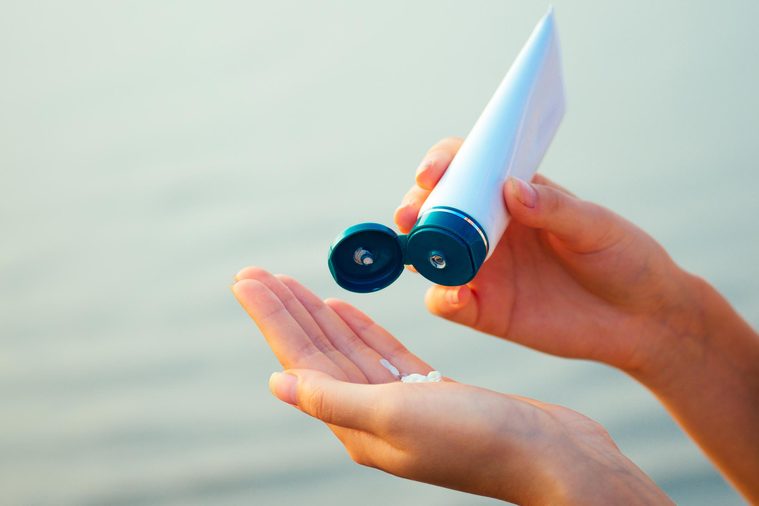
Do: Apply sunscreen every day
Ask any dermatologist and they would urge you to apply sunscreen every day of the week, not just when you’re relaxing by the pool. In fact, there different types of sunscreen for every type of activity. You wouldn’t want to wear a sunscreen that’s too oily to a special outdoor event.

Do: Put on sunscreen in the winter
Using sunscreen every day even includes during the winter month. Locking away your sunscreen after the warm summer months is a habit you’ll want to break after learning the real reasons to wear sunscreen in the winter. Despite the overcast and possible snow, harmful UV rays can penetrate even the thickest winter cloud. In fact, 80 percent of the sun’s rays can go right through them.

Don’t: Think that dark skin protects you from UV rays
People with darker skin tones are just as susceptible to getting skin cancer as people with fair skin. Though sunburns might be harder to detect, that’s even more of a reason to always apply sunscreen when you go outside. According to the CDC, up to 30 percent of darker-skinned ethnic groups have reported at least one sunburn in the past year. These are 10 more sunscreen myths dermatologists wish you’d stop believing.

Do: Wear sunscreen inside
Remembering to apply sunscreen is easy when you’re getting ready for a day in the sun. But the sun can still affect your skin when you’re inside or just driving your car. More than half the cases of skin cancer in a University of Washington study showed people had a form of skin cancer on the left side of their body (the side of the body that’s exposed to the car window while driving.) If you didn’t know that, there are 18 more sunscreen mistakes you probably didn’t realize you’re making.
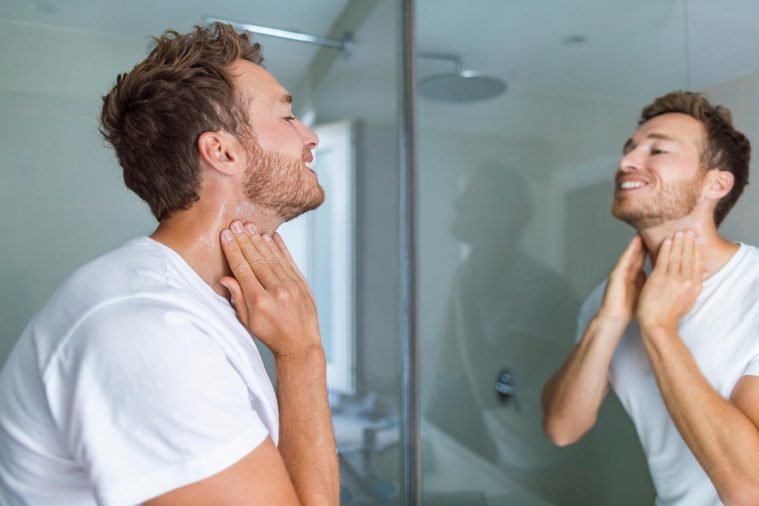
Do: Get special sunscreen for acne-prone skin
Just like pregnant and breastfeeding women should be careful of the active ingredients in their sunscreen, so should people who tend to break out. Beware of fragrances or preservatives when shopping for sunscreen. And if you’re shopping your stash at home, double check the “use by” date and make sure you don’t apply expired sunscreen. Apparently, three out of four sunscreens don’t work, and this is the real reason why.
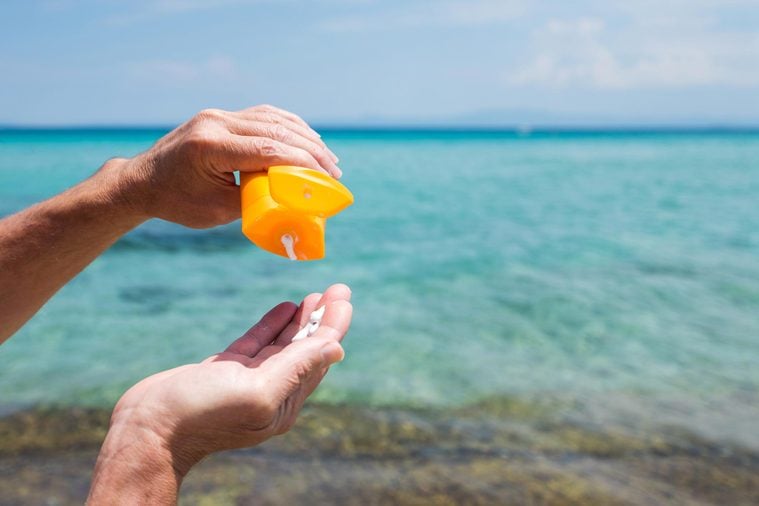
Don’t: Apply sunscreen once
To make the most of your sunscreen, dermatologists recommend reapplying sunscreen about every two hours. If you want the best protection possible, check out the best sunscreen for every skin type.

Do: Buy a comfortable sunscreen
Because you should be wearing sunscreen every day, it should feel good on your skin. The better your sunscreen feels on your body the more likely you will put it on, even when you’re inside.
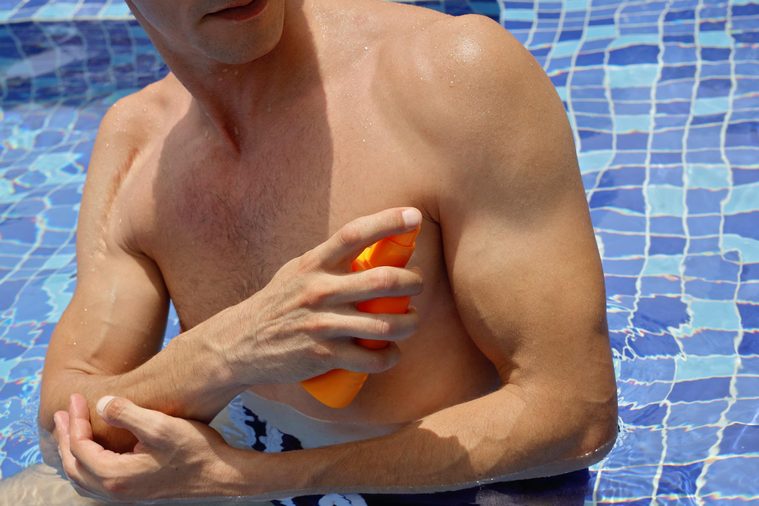
Do: Wear a water-resistant sunscreen
Even if you don’t think you’re getting into the pool or into the ocean at the beach, wearing a water-resistant sunscreen will still be your best option. Because without a doubt, you will sweat when you’re outside. With a water-resistant sunscreen, your skin will be protected for longer. Find out if you’re at risk of one of these two types of skin cancer that are appearing more and more.
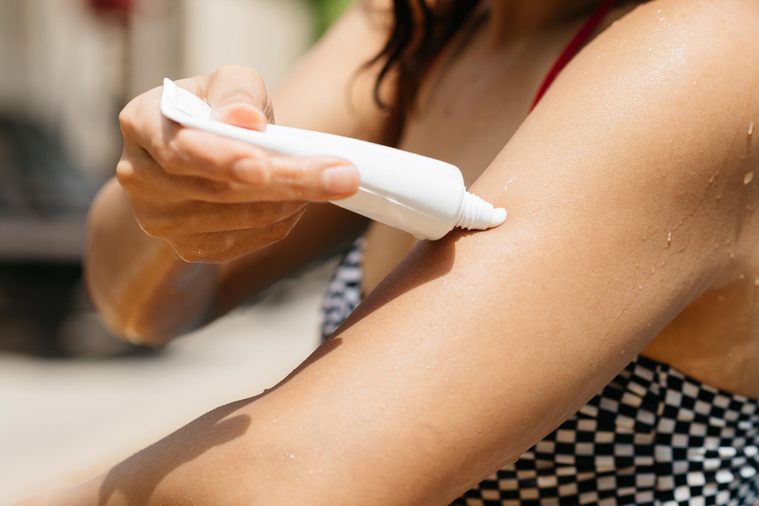
Don’t: Use only a little bit
Research has shown that most people only wear 25 to 50 percent of the true amount of sunscreen they should have on. Because you want to protect all of your sun-exposed skin (even your scalp!) you should squeeze out an amount about the size of a golf ball. Did you know that there are 10 sneaky places skin cancer can be that aren’t on your skin?
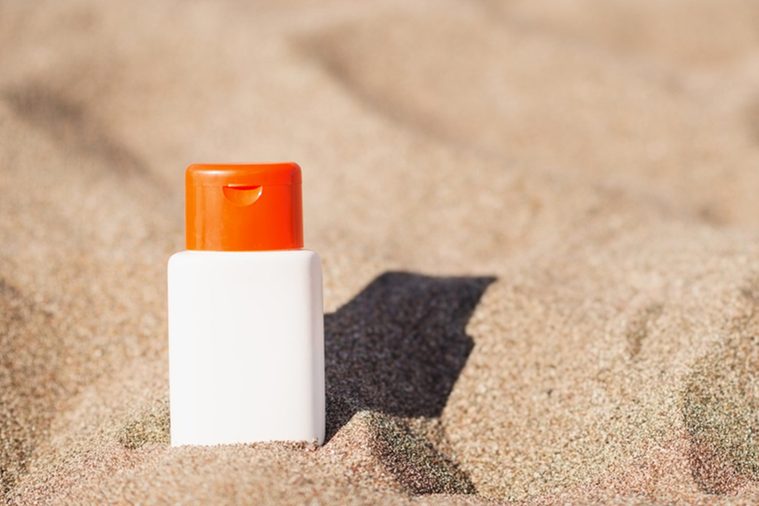
Don’t: Keep expired sunscreen
One myth you shouldn’t believe is that your sunscreen won’t expire. Especially if you store your sunscreen in an environment that’s too warm, you risk having the active ingredients become inactive. And wearing expired sunscreen puts your skin at an even bigger risk of skin cancer.
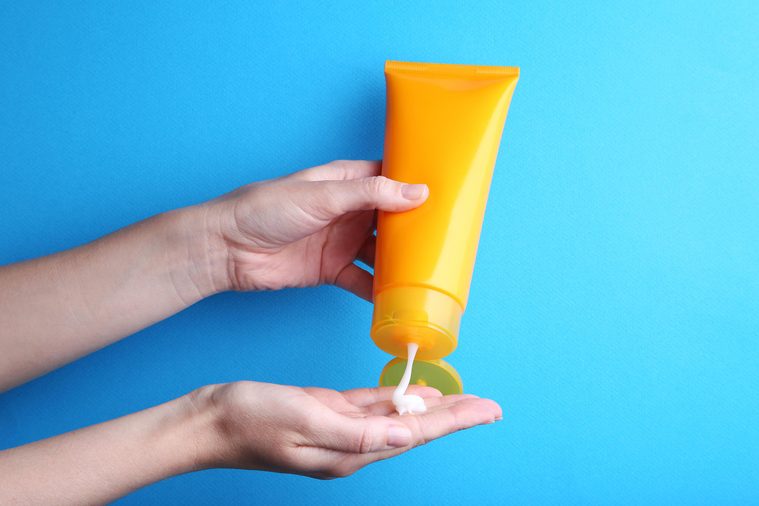
Do: Use a cream sunscreen
Sunscreen application is easier when you use a spray, but you often end up missing places of your body. And if it’s a particularly windy day, you might be missing your body completely without realizing it. By using a cream sunscreen you can see where the lotion gets applied to make sure everywhere is protected evenly.

Do: Put sunscreen on your scalp
Have you ever gone to the beach and came back home with an itchy or red scalp? That probably means you got a sunburn on the top of your head. The best way to apply sunscreen to your scalp is by using a spray. Be sure to always check these 10 places when you’re looking for skin cancer.
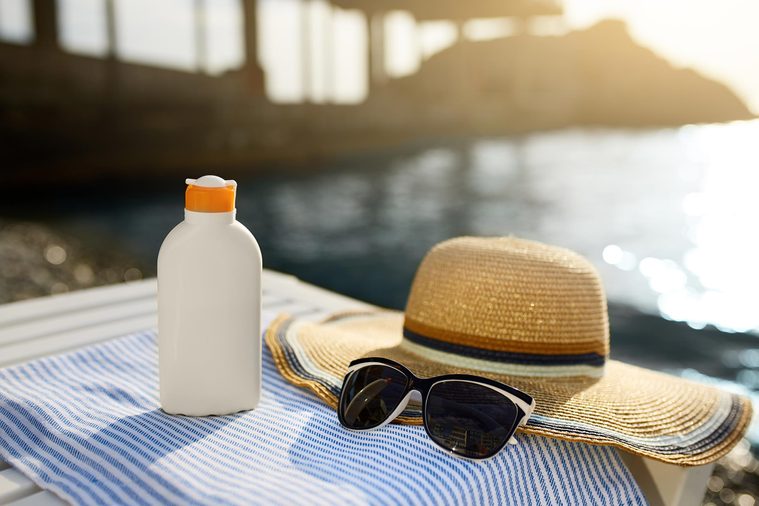
Don’t: Apply after you get to the pool or beach
When you put on sunscreen when you’re already outside, it’s likely that you’ll sweat it off before it had a chance to absorb into your skin. Giving your skin time to soak up the sunscreen means you can soak up the sun for longer because your body will have maximum protection from harmful UV rays.
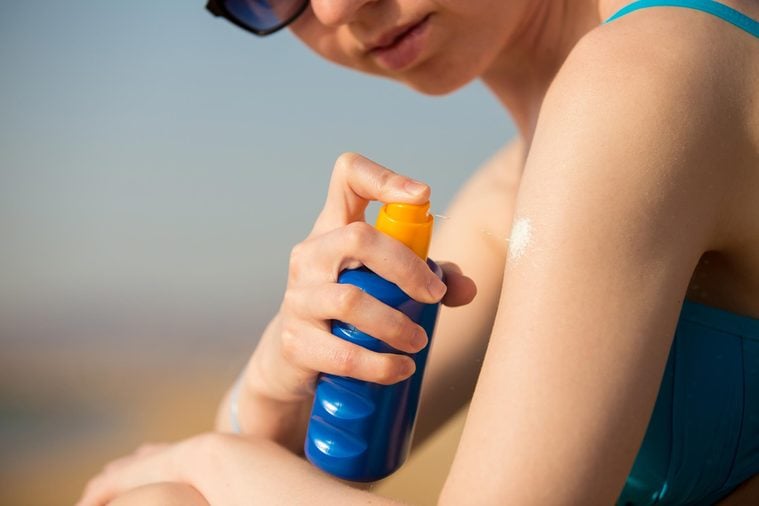
Do: Know what’s inside your sunscreen
If you don’t know what the terms “broad spectrum” and “SPF” really mean, how can you know if you’re choosing the best sunscreen for your skin type and the activity you plan to do outside? Don’t worry, we’ve got you covered. Here’s what everything on sunscreen labels really means.

Don’t: Get dressed first
Remembering to add sunscreen into your everyday routine can be difficult for some people. To make sure you don’t forget, put it near your typical everyday skin-care items. But putting on sunscreen before you get dressed for the day will help you reach places you might forget when you are in your bathing suit. If you constantly have problems with your swimsuit, here are 11 mistakes you’re probably making and how to fix them.
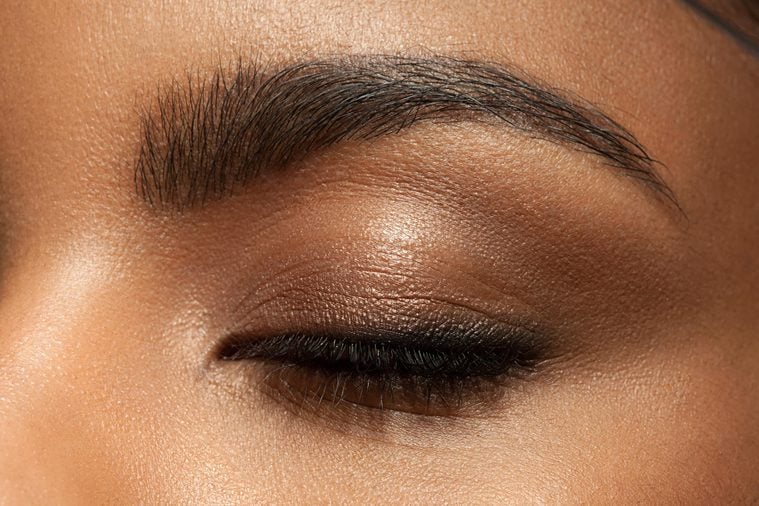
Do: Wear sunscreen on your eyelids
Sunglasses are a great way to protect your eyes from harsh sunshine, but your eyelids are so delicate that they need double protection. When you rub your sunscreen into your face, be sure to cover your eyelids, too. Just be careful not to get the lotion in your eyes!
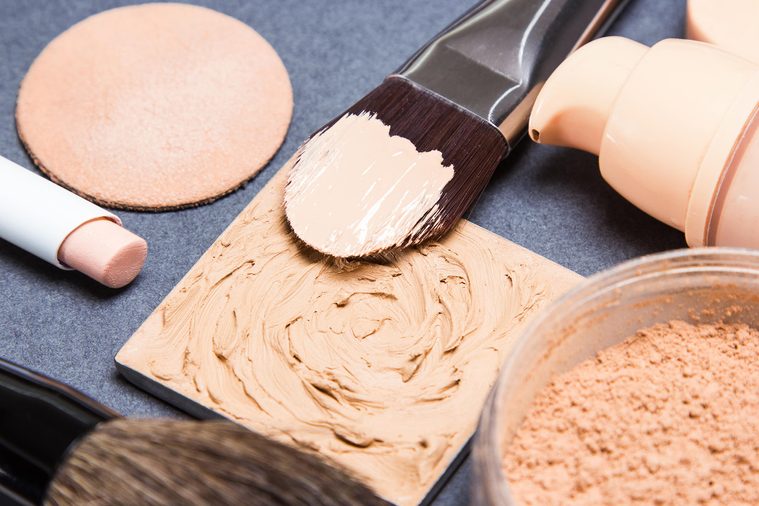
Don’t: rely on the sunscreen in your makeup
Buying makeup that has SPF is a great idea! But don’t mistake that for meaning you shouldn’t apply an actual sunscreen too. As the day goes on, you should reapply sunscreen to your face because cosmetics aren’t always water-resistant. Your everyday sweat and oil will wear it down putting you at risk of soaking in harmful rays.
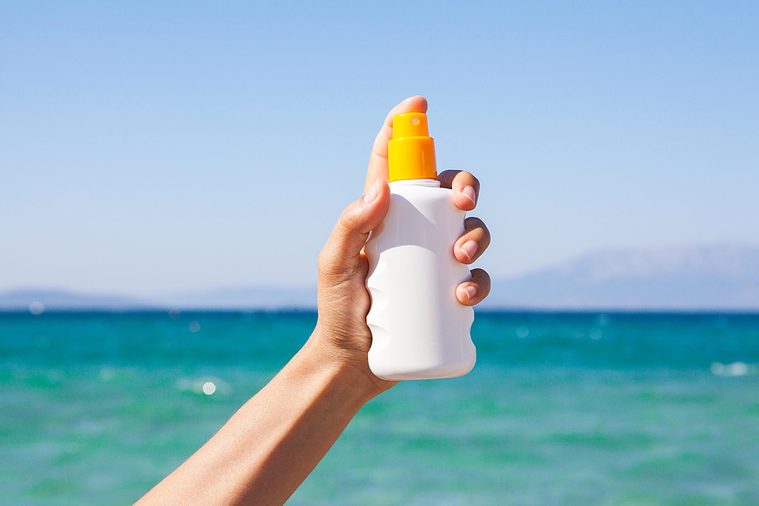
Do: Buy a quality sunscreen
Not all sunscreens are created equal. Your sunscreen should be safe for your skin, actually protect you, and last long. Now, find out the sunscreens dermatologists use on themselves.